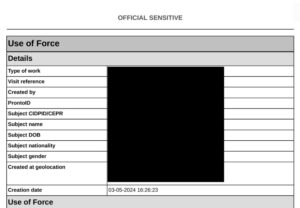‘Inhumane’ treatment of migrants rounded up in UK’s failed Rwanda plan revealed
Published on 14 September 2024
Immigration enforcement officers carry out dawn raids as part of Operation Vector. Credit: Home Office

Campaigners say these “shocking” accounts foreshadow further harm that could be inflicted under the new Labour Home Secretary
Reports Aaron Walawalkar. Edited by Harriet Clugston.

